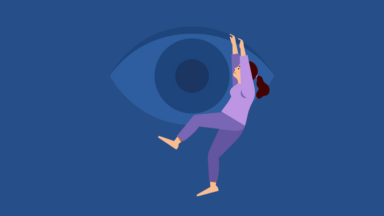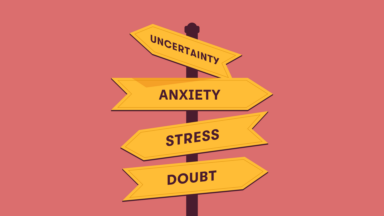
Sleep is essential for our physical and mental well-being, but for some, a good night’s rest can be elusive. If you find yourself lying awake at night, tossing and turning while the rest of the world sleeps peacefully, you might be wondering, “Do I have insomnia?” In this blog post, we’ll help you understand the common signs and symptoms of insomnia, explore its causes, and provide guidance on when to seek help. Let’s unravel the mystery of sleepless nights and take steps towards achieving the restful sleep you deserve.
Signs and Symptoms of Insomnia
Insomnia is more than just the occasional sleepless night. It’s characterised by persistent difficulties with falling asleep, staying asleep, or waking up too early and not being able to return to sleep. To determine if you might have insomnia, look out for these common signs:
Difficulty Falling Asleep: If it takes you longer than 30 minutes to fall asleep regularly, you may be experiencing insomnia.
Frequent Nighttime Awakenings: Waking up several times during the night and struggling to go back to sleep is a typical symptom.
Early Morning Awakening: If you consistently wake up much earlier than you intend and can’t fall back asleep, this could indicate insomnia.
Daytime Sleepiness: Despite spending time in bed, you feel excessively tired and fatigued during the day.
Irritability and Mood Changes: Insomnia can lead to irritability, mood swings, and difficulty concentrating due to lack of sleep.
Impaired Functioning: Persistent sleep problems can interfere with your daily activities, work, and overall quality of life.
Worrying About Sleep: Constantly worrying about your sleep patterns can exacerbate insomnia, creating a cycle of sleeplessness.
Causes of Insomnia
Insomnia can be triggered by various factors, including:
Stress: High levels of stress or anxiety can disrupt your ability to relax and fall asleep.
Medical Conditions: Certain medical conditions, such as chronic pain, allergies, and gastrointestinal issues, can interfere with sleep.
Medications: Some medications may have side effects that affect sleep patterns.
Lifestyle Factors: Poor sleep hygiene, irregular sleep schedules, and excessive caffeine or alcohol intake can contribute to insomnia.
Mental Health: Conditions like depression and anxiety are closely linked to insomnia.
Life Changes: Significant life events, such as job changes, divorce, or the loss of a loved one, can disrupt sleep.
Seeking Help for Insomnia
If you suspect you have insomnia and it’s affecting your daily life, it’s essential to seek help. Start by discussing your sleep problems with your GP or a sleep specialist. They can:
Assess Your Sleep: Your GP may ask about your sleep habits, conduct physical exams, and recommend sleep studies to diagnose the type and severity of insomnia.
Identify Underlying Issues: Understanding the root causes of your insomnia is essential for effective treatment.
Recommend Lifestyle Changes: Your GP may suggest lifestyle modifications, such as improving sleep hygiene, reducing stress, and limiting caffeine or alcohol intake.
Recommend Cognitive-Behavioural Therapy (CBT-I): CBT-I is a highly effective and non-drug treatment for insomnia. It helps change negative thought patterns and behaviours related to sleep. If you think you have insomnia, you may benefit from a Cognitive Behavioural Therapy treatment like Sleepio. Sleepio works with you to develop a personalised insomnia treatment plan, empowering you to challenge negative thought patterns, establish healthy sleep habits, and enjoy restful nights of sleep.
Prescribe Medication: In some cases, medications may be prescribed to manage insomnia, but they are usually considered after other interventions.
In summary, if you’re wondering, “Do I have insomnia?” it’s crucial to recognise the signs and take action. Persistent sleep problems can impact your overall well-being, but help is available. By identifying the signs of insomnia, understanding its causes, and seeking professional guidance, you can take proactive steps towards achieving better sleep and improving your quality of life. Don’t let sleepless nights define your days—reach out for support and embark on the path to restful and restorative sleep.

Here’s our latest

Does Cognitive Behavioural Therapy For Insomnia Really Work?
For many people, the struggle to get a good night’s sleep is all too familiar. Insomnia can affect every aspect…

Alzheimer’s and Sleep Changes
Alzheimer’s disease is a challenging journey for both patients and their families. In addition to memory and cognitive changes, Alzheimer’s…

Cancer and Sleep
Hearing the words “you have cancer” affects more than just your physical health. People living with cancer say that poor…


